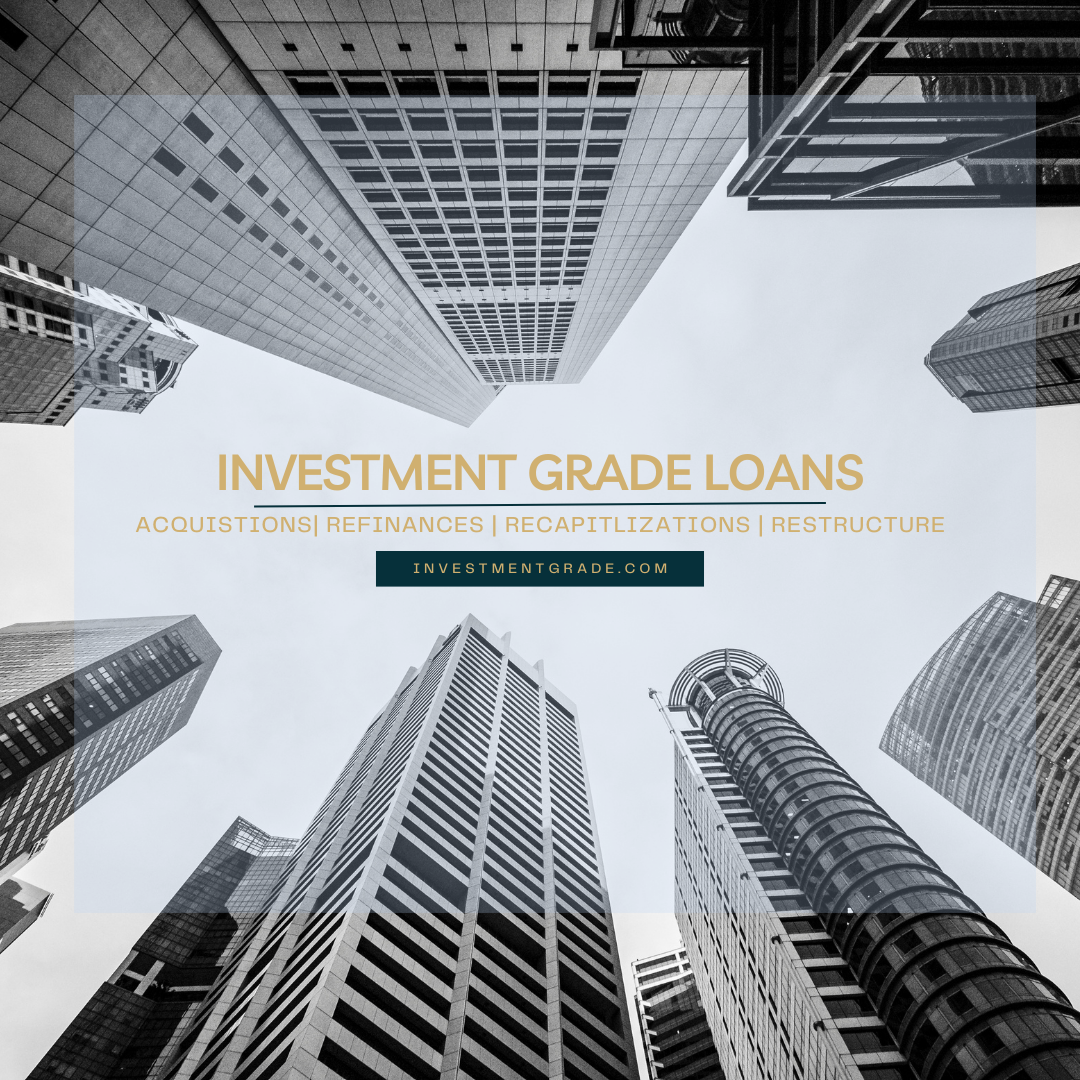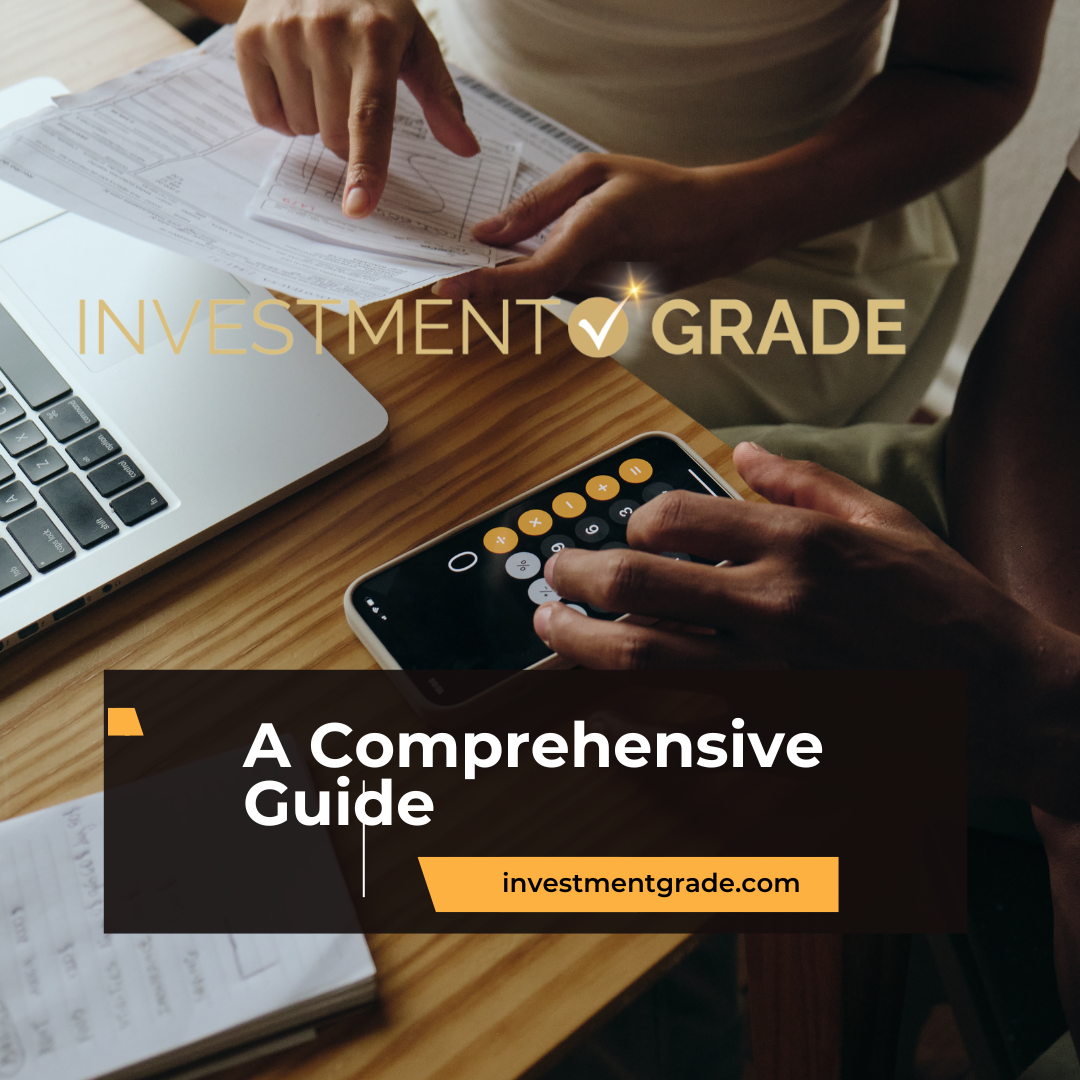Investment Grade
Commerical
Commercial Real Estate represents both a tangible gateway to wealth creation and a cornerstone in achieving an “investment grade” standard that investors can trust over the long run. In this category, we focus on the qualities that elevate certain properties beyond ordinary transactions and into opportunities known for resilience, stability, and lasting value. Here, our coverage addresses how market-tested fundamentals—such as creditworthy tenants, well-structured leases, and strategic financing—help shape the kind of real estate that earns an investment grade designation.
By looking at what underpins an investment grade commercial asset, we highlight features that matter to both newcomers and seasoned investors. Strong tenant credit profiles can steady your income stream, long-term leases can reduce uncertainty, and balanced property-level financials can foster peace of mind even when markets shift. These elements aren’t just numbers on a balance sheet; they are signals of a property’s capacity to weather economic changes, maintain occupancy, and generate consistent returns. In turn, that stability supports better loan terms, improved refinancing options, and more strategic acquisitions—factors that enable you to scale your portfolio with a higher degree of confidence.
We also consider the importance of aligning property types and financing structures with investment grade principles. For example, NNN (Triple Net) lease properties backed by well-known brands often deliver the kind of reliability that lenders appreciate, making it easier to secure favorable terms. Multifamily assets that demonstrate steady demand and consistent cash flow can earn their place as investment grade staples, appealing to institutions and long-term investors. Industrial warehouses, when anchored by robust supply chain tenants, and healthcare facilities serving essential services, can both achieve investment grade recognition by showcasing enduring tenant quality and indispensable market roles. Even hospitality and special-use properties can approach investment grade status when carefully selected, well-capitalized, and managed with foresight.
Throughout our articles, we highlight the strategies that help align commercial real estate with investment grade metrics: understanding cap rates that reflect sound property fundamentals; selecting loans that balance flexibility with prudent leverage; leveraging 1031 exchanges to maintain portfolio momentum; and adopting syndication structures that prioritize transparency and investor well-being. In short, this category aims to guide you toward choices that aren’t merely about acquiring buildings, but about building a legacy rooted in the principles that define investment grade. By focusing on quality, creditworthiness, and strategic execution, you’ll be better prepared to navigate the commercial real estate landscape and position yourself for enduring success.

-

Investment Grade Auto NNN: A Guide to Acquiring Automotive Tenants
23rd February 2025 | by the Investment Grade Team
The automotive sector has evolved into a vibrant niche within the triple-net (NNN) lease market. Auto parts retailers, service centers, dealerships, and rental companies all play a significant role in delivering essential services, from routine maintenance to complex repairs. These businesses, often operating from standalone buildings or pad sites with long-term leases, are especially attractive…
-

The Power of Cost Segregation in Commercial Real Estate:
23rd February 2025 | by the Investment Grade Team
Overview of Cost Segregation and Its Role in CRE Contributor: Eli Schultz Cost segregation is a tax strategy that has quietly become a secret weapon for commercial real estate investors. At its core, cost segregation involves identifying and reclassifying components of a building into shorter depreciation categories, rather than treating the entire property as a…
-

Investment Grade Dollar General: An In-Depth Analysis for Passive Income Investors
23rd February 2025 | by the Investment Grade Team
Contributor: Eli Schultz Dollar General has become a cornerstone for many passive real estate investors, especially those seeking NNN (triple-net) leases backed by an investment grade tenant. With thousands of small-format stores across the country, this discount retail giant offers steady cash flows, minimal landlord obligations, and a resilient business model. This analysis dives deep…
-

Navigating the Future: 2025 Commercial Real Estate Outlook
23rd February 2025 | by the Investment Grade Team
The commercial real estate market is on the cusp of transformation. Deloitte’s 2025 Commercial Real Estate Outlook presents a cautiously optimistic vision for the future of the sector—a vision supported by robust survey data, macroeconomic trends, and the rapid pace of technological adoption. In a market often defined by cycles of boom and bust, industry…
-

Investing in the Future: Top Investment Grade Sectors Driving Real Estate Growth in 2025
23rd February 2025 | by the Investment Grade Team
Below is a look at the investment-grade alternative sectors poised to define real estate markets in 2025. In today’s ever-changing economic landscape, investors are seeking sectors that not only offer attractive yields but also deliver stability, resilience, and long-term value. As we navigate a world of shifting demographics, technological innovation, and heightened environmental awareness, certain…
-

Investment Grade CRE Outlook: 2025 Analysis of Commercial Real Estate Sectors
23rd February 2025 | by the Investment Grade Team
As we enter 2025, the U.S. commercial real estate (CRE) market continues to present a compelling yet nuanced landscape. Following years of significant volatility, the market has begun to stabilize, driven by a confluence of macroeconomic factors, evolving capital market conditions, and sector-specific dynamics. The CRE market remains a vital component of the U.S. economy,…
-

Investment Grade Data Centers: A Comprehensive Analysis of Opportunities and Challenges
23rd February 2025 | by the Investment Grade Team
The data center industry is undergoing a transformative era, driven by the escalating demand for digital services, cloud computing, and the rise of artificial intelligence (AI). This unprecedented growth has positioned data centers as a vital component of the digital economy, offering substantial opportunities for investors. JLL’s 2025 Global Data Center Outlook highlights the extraordinary…
-

Fast Casual Investment Grade: Winners, Losers, and Opportunities in Adaptive Reuse
23rd February 2025 | by the Investment Grade Team
The restaurant industry has long been considered a risky venture—a sentiment humorously encapsulated in the 1988 film Midnight Run. In one memorable scene, Charles Grodin’s character, an accountant, bursts the bubble of Robert DeNiro’s bounty hunter, who dreams of opening a coffee shop with his big score. “A restaurant is a very tricky investment,” Grodin’s…
Investment Grade | Investment Grade Real Estate | Investment Grade Capital | Investment Grade Ratings & Advisory


